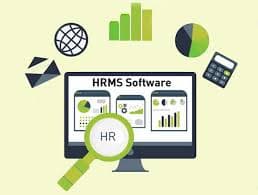Unleashing the Power of a Web-Based Human Resource Management System
Published on June 6th, 2023
In today's digital landscape, organizations are increasingly turning to technology-driven solutions to streamline their HR operations and enhance workforce management. A Web-Based Human Resource Management System (HRMS) is one such powerful tool that revolutionizes the way HR departments manage their processes and interact with employees. In this blog, we will explore the concept of a Web-Based HRMS, its features, and the advantages it brings to organizations in the modern era of remote work and digital connectivity.
Understanding a Web-Based Human Resource Management System
A Web-Based Human Resource Management System (HRMS) refers to an advanced software solution that allows organizations to manage their HR processes through an online platform. Unlike traditional, on-premises HR systems, a web-based HRMS operates entirely through a web browser, eliminating the need for installing software on individual devices. It provides a secure, centralized online environment for HR activities, enabling access from anywhere, anytime, as long as there is an internet connection.
Key Features of a Web-Based Human Resource Management System
Here is a comprehensive look into web based human resource management systems:
Employee Self-Service Portal
A significant advantage of a web-based HRMS is the provision of an employee self-service portal. This feature empowers employees to access and manage their personal information, including pay stubs, tax forms, leave balances, benefits enrollment, and performance evaluations. By offering self-service capabilities, the HRMS reduces administrative workload and fosters employee engagement and empowerment.
Remote Accessibility
With a web-based HRMS, HR professionals and employees can access the system remotely, irrespective of their physical location. This feature is especially valuable in the current era of remote work and distributed teams. HR tasks, such as reviewing and approving leave requests, accessing employee records, and conducting performance evaluations, can be seamlessly carried out regardless of geographical constraints.
Streamlined Recruitment and Onboarding
Web-based HRMS systems provide intuitive interfaces and workflows for managing the entire recruitment and onboarding process. HR professionals can post job vacancies, track applicants, conduct virtual interviews, and digitally onboard new hires. This streamlines the hiring process, saves time, and enhances the candidate experience by leveraging online collaboration tools and automation.
Secure Data Storage and Privacy
Web-based HRMS platforms prioritize data security and privacy. They employ robust encryption protocols and secure servers to ensure the confidentiality of sensitive employee information. With data stored in a centralized and secure online environment, organizations can mitigate the risks associated with physical data loss, unauthorized access, and compliance breaches.
Analytics and Reporting
A web-based HRMS offers comprehensive analytics and reporting capabilities. HR professionals can generate real-time reports and analytics on various HR metrics, such as employee turnover rates, training effectiveness, and workforce demographics. These insights enable data-driven decision-making, allowing organizations to optimize HR strategies and align them with business objectives.
Advantages of a Web-Based HRMS
Here is an elaborationn on the different advantages of a web based human resource management system:
Flexibility and Scalability
Web-based HRMS solutions provide organizations with flexibility and scalability. They can adapt to the evolving needs of growing businesses, accommodating additional users and expanding functionalities as required. The web-based nature allows for easy updates and enhancements, ensuring organizations stay ahead with the latest HR technology trends.
Cost and Resource Efficiency
Implementing a web-based HRMS eliminates the need for on-premises hardware, software installations, and ongoing maintenance. This significantly reduces IT infrastructure costs and frees up resources that can be allocated to strategic HR initiatives. Additionally, cloud-based subscription models offer cost-effective pricing options, making the solution accessible to businesses of all sizes.
Enhanced Collaboration and Communication
Web-based HRMS platforms facilitate seamless collaboration and communication among HR teams and employees. Features such as instant messaging, document sharing, and virtual meeting integrations enable efficient collaboration, even when team members are geographically dispersed. This improves teamwork, productivity, and employee engagement.
Conclusion
A Web-Based Human Resource Management System (HRMS) has emerged as a game-changer for organizations looking to streamline HR processes, empower employees, and adapt to the demands of a digital world. With features like employee self-service portals, remote accessibility, streamlined recruitment, secure data storage, and analytics capabilities, a web-based HRMS offers numerous advantages. It enhances HR efficiency, improves employee engagement, and enables data-driven decision-making. By embracing a web-based HRMS, organizations can elevate their HR practices, enhance organizational performance, and navigate the evolving landscape of workforce management with confidence.
Related Reads
- Human resource management information system
- System of Human Resource Management
- Human Resource Database Management System
- Human Resource Management System Modules
- Human Resource Management System Projects
- Human Resource Management System Workflow
Authors

Soujanya Varada
As a technical content writer and social media strategist, Soujanya develops and manages strategies at HireQuotient. With strong technical background and years of experience in content management, she looks for opportunities to flourish in the digital space. Soujanya is also a dance fanatic and believes in spreading light!
Hire the best without stress
Ask us how
Never Miss The Updates
We cover all recruitment, talent analytics, L&D, DEI, pre-employment, candidate screening, and hiring tools. Join our force & subscribe now!
Stay On Top Of Everything In HR

